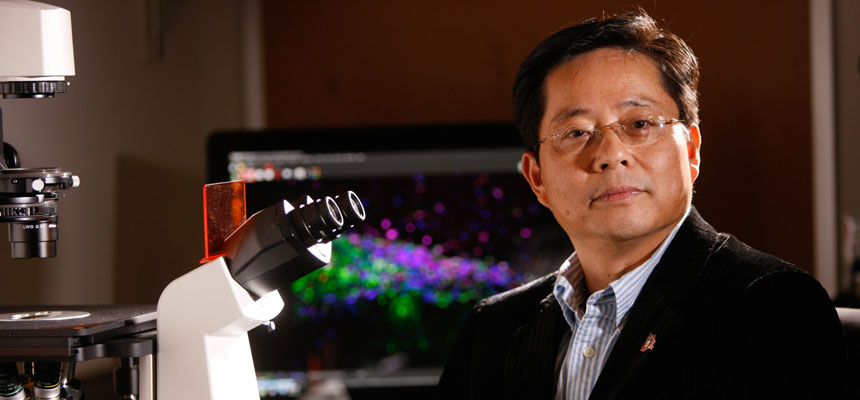The latest research on longevity
By Jan Jarvis

By Jan Jarvis
Every day, Kunlin Jin, MD, PhD, drinks five cups of green tea, three in the morning and two in the afternoon.
Brewed from the unfermented plant, the tea has been touted for its anti-aging and longevity benefits.
“It should be very good for your health,” said Dr. Jin, Professor of Pharmacology & Neuroscience.
But as Dr. Jin well knows, there are plenty of theories on aging and what people can do to stay healthier into old age.
Scientists from around the globe, including four from UNT Health Science Center, will gather in Nice, France on October 5-8 to share the latest research on longevity and age-related disease. At the Conference on Aging and Disease, which UNTHSC helped organize and is co-sponsoring, scientists will hear about everything from how to improve the quality of life to whether exercise affects aging. This is the third year the International Society of Aging and Disease, or ISOAD, has sponsored the conference.
“People not only want to live longer, they want to live healthier,” said Dr. Jin, who is co-founder and Executive Director of the ISOAD. “That’s also the goal of the International Society on Aging and Disease.”
The challenge is finding the best way to do that, whether it is a daily dose of green tea, exercise or something else.
“We see people living longer because of advances that have been made in medical technology,” Dr. Jin said. “Working longer, exercising more and eating less also helps.”
People are living longer regardless of what they do to make that happen. The life expectancy has risen from about 47 years in 1900 to 77 years today.
There are two schools of thought on aging. Some scientists study biological or normal aging and the belief that wear and tear on the body limits longevity. Others, including Dr. Jin, research the role of age-related diseases, such as cancer and stroke.
Most people die from diseases caused by organ or immune system dysfunction, he said. Diabetes, hypertension and other age-related diseases affect 80 percent of older adults.
“If we can stop or slow aging so it occurs later in life, then we may be able to prevent or treat age-related diseases,” Dr. Jin said. “Living a healthy life is important.”




Social media